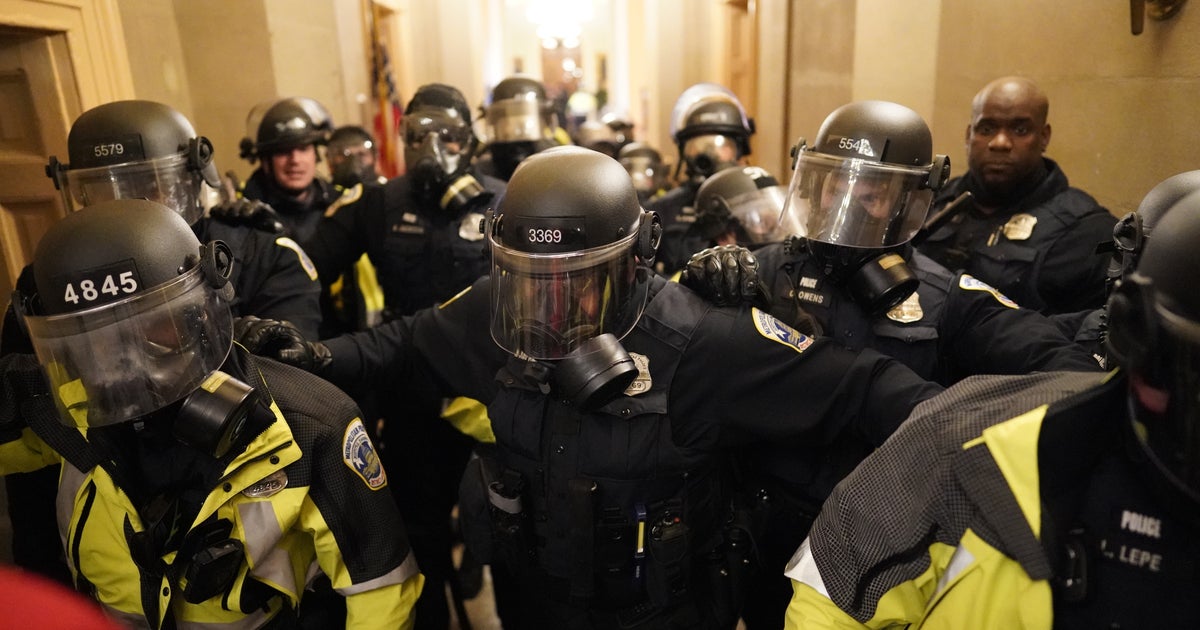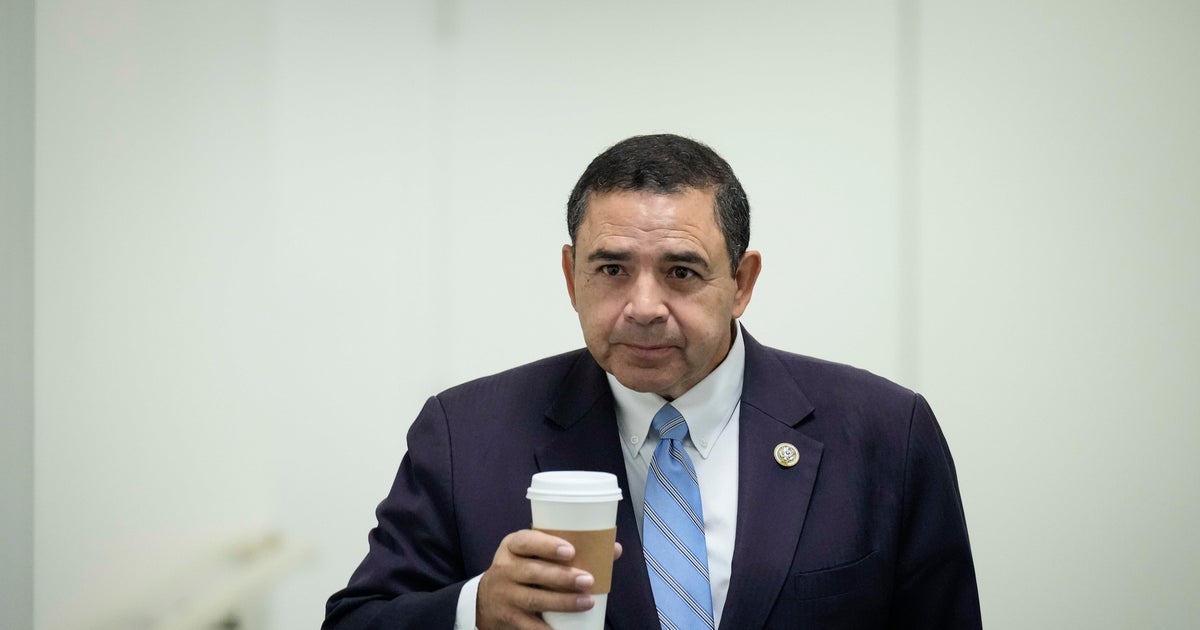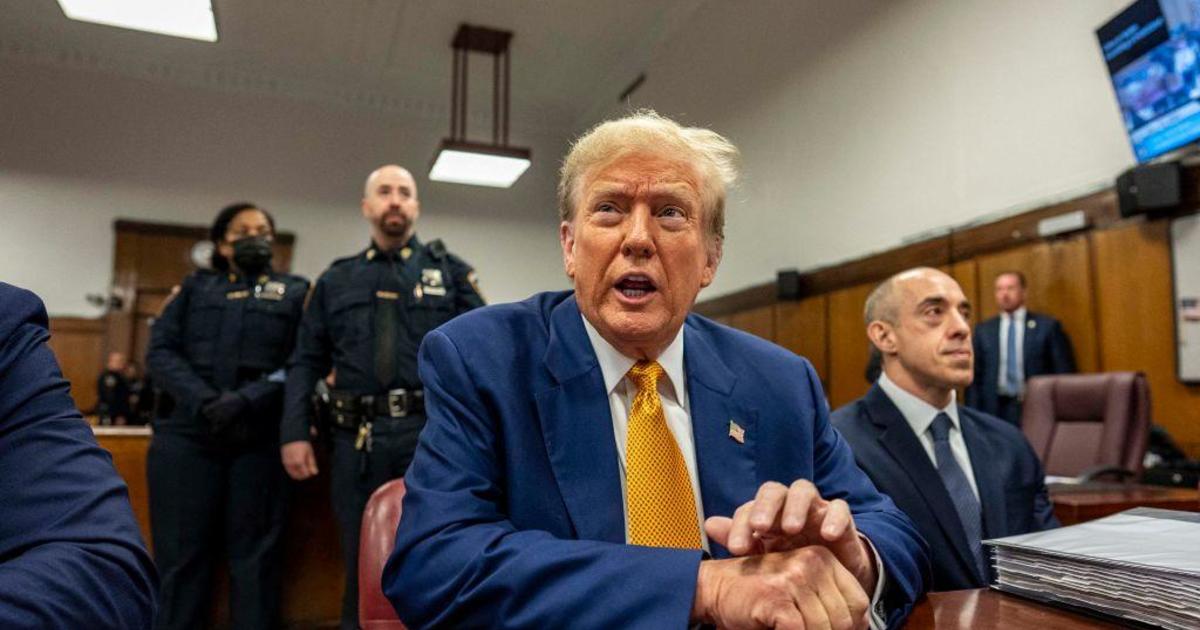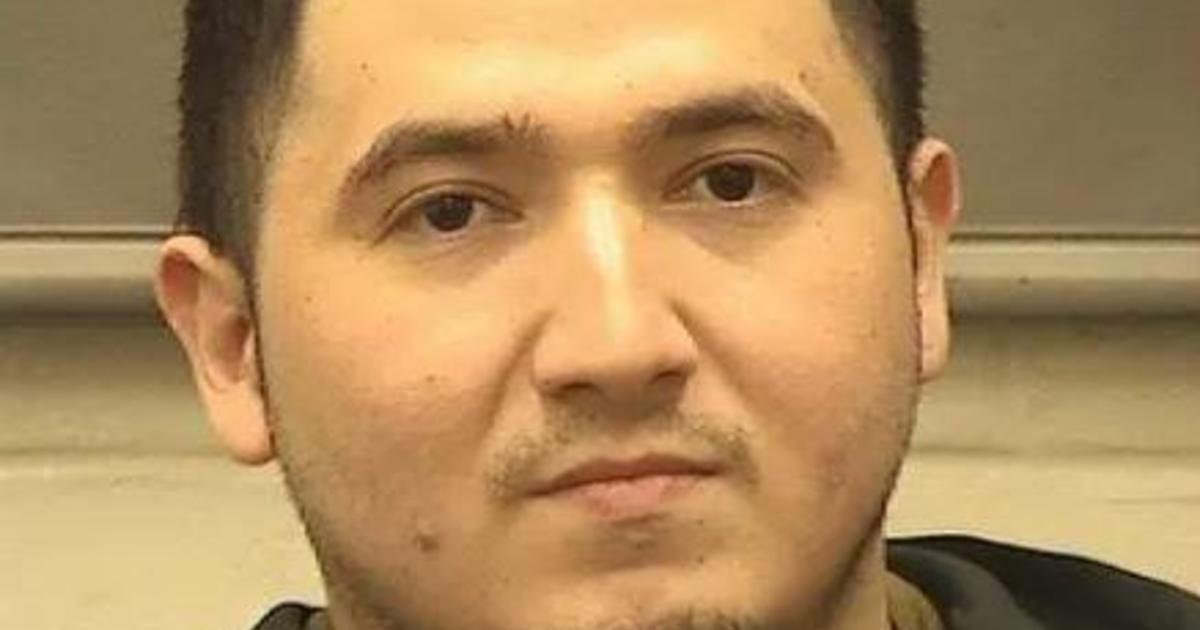Oath Keepers leader ordered jailed until trial on January 6 charges
Stewart Rhodes, the founder and leader of the far-right militia group known as the Oath Keepers, will be jailed pending trial in Washington, D.C., a Texas magistrate judge ruled Wednesday.
Rhodes is charged with multiple crimes stemming from his alleged planning and participation in the January 6 attack of the U.S. Capitol, including a count of seditious conspiracy, the most serious charge. He will likely be transferred from a Texas jail to Washington, D.C., where he will join a handful of his co-defendants in pretrial detention.
Prosecutors successfully argued in a Monday detention hearing that the leader of the militia group had to be detained because of the possibility that he could flee, was a danger to the community, and the risk he may pose to his co-defendants and other members of the Oath Keepers who have been charged for the January 6 Capitol attack.
So far, about 20 members or affiliates of the Oath Keepers have been charged with a crime stemming from the Capitol attack, many are accused of conspiracy or the more serious seditious conspiracy.
"The evidence shows Defendant orchestrated a large-scale attack on the federal government with the purpose of intimidating, by violence, federal officials and disrupting official governmental proceedings incident to the transfer of power in the Executive Branch following a national election," Magistrate Judge Kimberly Priest Johnson wrote in her opinion on Wednesday.
Rhodes' attorney Phillip Linder said Wednesday night that he would file an appeal on Thursday to Rhodes' detention.
Rhodes and nine of his co-defendants have pleaded not guilty to charges that they planned for and participated in the January 6 Capitol attack. In all, 11 Oath Keepers have been charged with seditious conspiracy.
In court documents filed ahead of Monday's hearing, the government detailed allegations made earlier this month against Rhodes in an indictment brought against him.
"Rhodes stood at the center of the seditious conspiracy— orchestrating plans to use force, recruiting and financing co-conspirators, purchasing weaponry and tactical gear, inciting support and action, and endeavoring to conceal his and other co-conspirators' crimes," the filing alleges.
Rhodes, the government alleges, recruited other members of the Oath Keepers "to join him in traveling to Washington, D.C., for operations aimed at stopping the transfer of power," namely by halting Congress' counting of Electoral College votes to certify the victory of Joe Biden in the 2020 presidential election.
Highlighting what they say was the defendant's coordination of armed "quick reaction force" (QRF) outside the city, prosecutors say individuals associated with Rhodes and the Oath Keepers, many of whom face charges of conspiracy themselves, stood at the ready outside of Washington, D.C.
"The QRF teams guarded an arsenal of firearms and related equipment and were prepared to speed those weapons into the hands of co-conspirators on the ground in Washington when directed by Rhodes or other conspiracy leaders," court documents allege.
As for his actions following the Capitol attack, the government argued, "Rhodes and co-conspirators then fled from the Washington area when they learned the FBI had begun arresting individuals involved in the attack. In the weeks that followed, Rhodes and his coconspirators continued to make plans to stop the presidential power transfer, amass additional weaponry and tactical gear, and prepare themselves to deploy their arms, if necessary, to stop the inauguration of a new president."
Prosecutors also argued for Rhodes' detention because of his access to firearms.
"In the days leading up to January 6," their filing asserted, "Rhodes himself purchased firearms related equipment to contribute to the operation. On January 1 and 2, while still in Texas, where Rhodes was residing at the time, he spent approximately $5,000 on firearms and related equipment, including a shotgun, scope, magazines, sights, optics, a bipod, a mount, a case of ammunition, and gun-cleaning supplies."
The Texas magistrate ultimately ruled Wednesday, "Defendant's authoritative role in the conspiracy, access to substantial weaponry, and ability to finance any future insurrection, combined with his continued advocacy for violence against the federal government, gives rise to a credible threat that Defendant's release might endanger others by fostering the planning and execution of additional violent events."
In the court's ruling, the judge revealed Rhodes' ex-wife, Tasha Adams, contacted the court after Monday's detention hearing and she reportedly "testified she filed for divorce in 2018 due to Defendant's violent tendencies."
"Ms. Adams testified that she fears for her safety and the safety of her six children should Defendant be released," the order explains, adding Rhodes "would physically abuse his children under the guise of participating in 'martial arts practice'." Adams said she never filed police reports about the alleged abuse.
Adams also apparently told the Court her ex-husband built what the court order described as "escape tunnels" and installed other protections in their backyard "in case the feds ever came to his door."
When asked by CBS News about Adams' allegations, Rhodes' attorney James Lee Bright called them "highly suspect," adding that while such allegations are owed "full due respect," Adams did not provide substantiating evidence upon cross examination.
The Justice Department has so far charged 11 alleged members of the Oath Keepers with seditious conspiracy, the most serious charge that has been brought against accused participants in the January 6 Capitol attack.
If convicted, each charge of seditious conspiracy carries a sentence of up to 20 years in prison, although federal judges have wide latitude to impose sentences.
Jake Fink of KTVT CBS-11 News in Texas contributed reporting.




